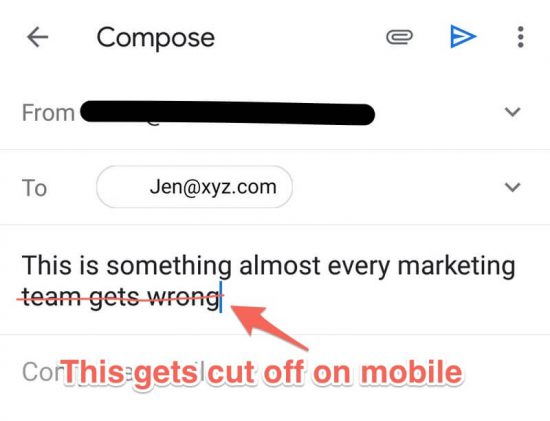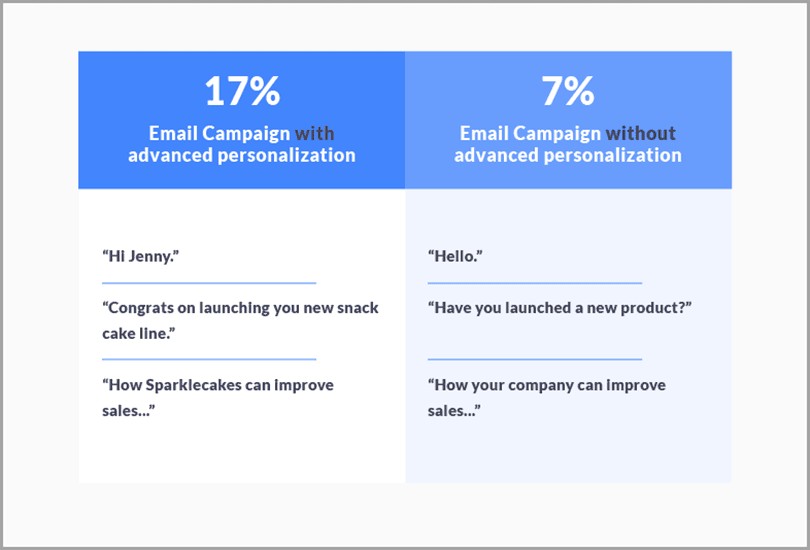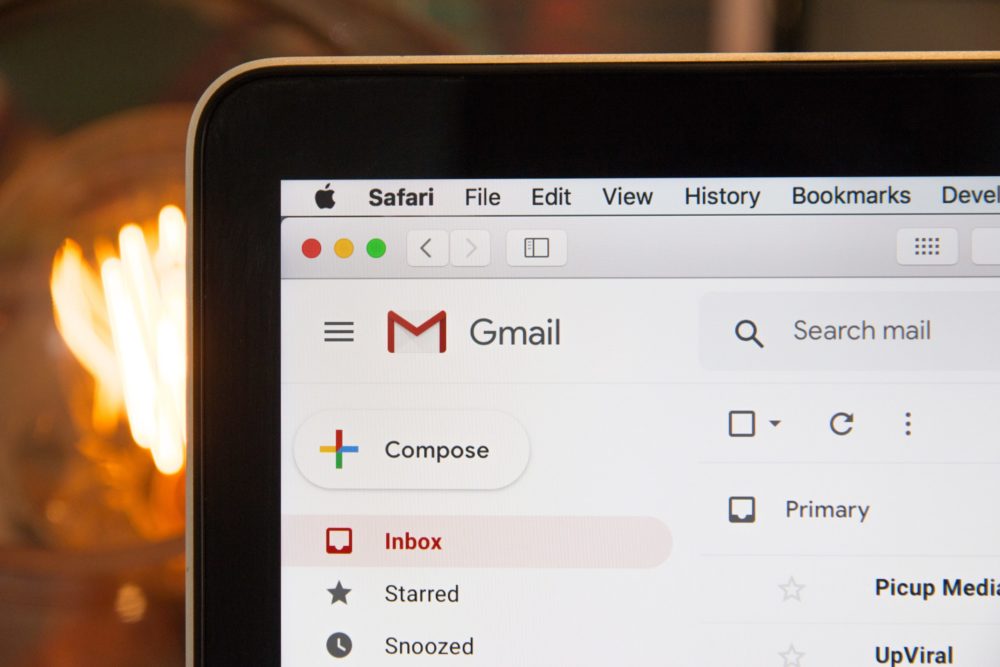An irresistible subject line is vital to the success of your cold emails. The average business email has an open rate of just 17%. As a result, there is a lot of room for improvement. Our first instinct when we see a cold email is to ignore it.
How will recipients learn more about your proposal if you can’t convince them to open the message?
Subject Lines for Cold Emails Matter
This is why subject lines for cold emails are so important. Your subject line is all you have to show recipients that your email is worth opening. When some companies can achieve cold email open rates of 70% or more, it is clear that this is not an inevitable part of email marketing.
With the right approach to crafting your subject lines for cold emails, you can significantly improve your results. This post will outline the most effective ways to grab attention for your emails.
But first, let’s talk about a cold email because these tips are not just for salespeople. When most of us hear ‘cold email’, we usually think about sales pitches sent out en masse, but the actual definition is much broader.
What Is a Cold Email?
A cold email is when you email someone you haven’t had prior contact with to propose an agreement. While this includes sales pitches, it also includes contacting potential employers and employees, reaching out to other businesses to establish partnerships, and sharing press releases with media organizations, among other uses.
When you are contacting someone who doesn’t know you, your subject line plays a significant role in their decision to read the rest of your email. As a result, great subject lines should always be part of your proposal template.
Rules from Great Subject Lines You Can’t Resist Opening
So what do great subject lines for cold emails look like? Following these tips will help you create cold emails that recipients can’t resist opening.
1. Be Descriptive
Good subject lines for cold emails tell the reader what is in the email. If a recipient doesn’t know what your email is about, why should they open it?
Don’t leave your lead in the dark about what you are proposing. It’s great to pique curiosity, but your subject line should not make recipients guess the topic or problem your message addresses.
- Subject lines exist to save people time by letting them know what an email is about before opening it.
- Subject lines that don’t perform this function are wasting someone’s time, which is not a great way to start the conversation.
- Avoid ‘clickbait’ subject lines like ‘You Won’t Believe This!’ that give readers no information about an email’s content. These don’t provide any compelling reason to open a cold email beyond casual curiosity.
Furthermore, most of us have seen many headlines like this and are conditioned to filter them out. Your cold email subject line should not resemble a gossip article written for ad clicks.
2. Use Mobile-Friendly Formatting
More than 46% of emails are read on mobile devices. Accordingly, mobile-friendly subject lines for cold email are critical. Most mobile email apps allow up to 35 characters in a subject line.
If you exceed this, part of the subject line will be cut off. Because of this, you don’t have a lot of space to explain your message entirely, but you can add more detail to the preheader.

Preheaders of up to 140 characters will be displayed after the subject line, without the recipient opening your email. Use this to cover your email’s main points or start to answer the question set up in your subject line.
3. Avoid the Spam Filter
Most of the time, we don’t even look in the spam folder, let alone open any of the emails we see there. As a result, getting flagged as spam will reduce your cold email’s response rate to almost zero, as most recipients will never see it.
Email providers don’t share their spam rules to prevent circumvention. However, there are several factors we can safely assume have a high impact.
Some are influenced by how recipients interact with your cold email:

- Open rates and replies
If your emails don’t get many responses or recipients don’t open them, it suggests your emails are unwanted. As a result, they will be more likely to be flagged as spam in the future. Clear subject lines that increase open rates will indirectly improve your trust factor because of this.
- Use of junk folders and deletion
Similarly, if many recipients delete your email or send it to the junk folder, this can also make your email look spam. Besides, it also suggests your subject line is not just failing to grab attention but actively discouraging recipients from checking out the message.
- Saved emails and added your address to the contact list
Conversely, users don’t save spam emails or add spam senders to their contact list. When this happens, it reduces your chance of getting flagged as spam. Including useful info and links in your email and starting a conversation give users a reason to keep your message and save your email address.
Additionally, spam filters analyze your email itself for signs of spam:
- Identical mass messaging
Sending similar emails to many addresses is the most apparent sign of spam. Personalized subject lines increase your email’s uniqueness, along with using mail merge tags to add specific information to templates.
- Spam trigger words
Email clients analyze the subject line and content of emails users flag as spam. Using words and phrases commonly found in these emails makes your message look suspicious.
- No-reply and reply-to addresses
No-reply addresses look suspicious to spam filters in addition to preventing replies, which boost your trust factor. As a result, using a reply-to address helps get past spam filters even without any responses.
- Email domains
Your email domain and IP address have independently-tracked trust scores. If either of these has been blacklisted, your email content doesn’t matter. It will be flagged as spam. Because of this, failing to test every email for potential flags can have long-term repercussions.
4. Open a Dialogue
Introducing your cold email with a conversational tone helps engage recipients with the topic and shows you want to hear their input. This lets recipients know your goal to learn more about how you can help them.
Asking a question in your subject line gets your reader thinking about their answer and focuses on their needs instead of your proposal. Author Shane Snow doubled his cold email response rate by posing a question in his subject lines.
Often people will be more interested in discussing their problems and goals than your request, which they don’t know much about yet. Opening a dialogue in this way keeps the emphasis on factors your recipient already cares about. Consequently, this can set the stage for a conversation about how you can help.
5. Create Urgency
When a recipient decides to read your email later, they are one step closer to never reading it. If someone gets a lot of emails, it could only be a matter of hours before your message is pushed out of the top page of their inbox.
Once that happens, your lead won’t even see your letter to remind them when they open their email app.

Creating a sense of urgency gives recipients a reason to open your email as soon as they see it. There are plenty of ways to give your subject line a sense of urgency:
- Deadlines
Including a deadline that recipients must act by lets any interested needs know they can’t procrastinate.
- Scarcity
Scarcity tells recipients they need to act before a limited number of opportunities run out.
For example, a potential client might respond faster when they know you only have time for one new project, and they will end up on a waiting list if someone else gets there first. As a result, you can get to work faster with serious clients and spend less on those who aren’t ready to start their project yet.
- Upcoming news and events
Discuss an upcoming change or event that matters to your recipient to let them know they should read your email before making their preparations. For example, you might want to partner with a local business for a seasonal promotion. Including the holiday in your subject line lets them know to check it out in advance to prepare for the event.
6. Personalize

Personalizing cold emails means a lot more than making sure you use the right name in your message. Who is going to receive your email, and why would they open it?
If your cold email is going directly to consumers, this means understanding and catering to your audience personas. Segmenting your customers and leads according to their interests and browsing behaviors will allow you to send different subject lines tailored to each group.
Even if the email content stays the same, matching subject lines to your audience segments makes your email more relevant to them. A one-size-fits-all approach rarely fits anyone well.
If your email is going to an organization, there are a few additional questions to consider. For example, let’s say your cold email is offering SaaS to other businesses:
- Will your recipient be the one using the software?
There is no point building your subject line around a topic; only end-users will understand if your recipient is not an end-user.
- What is their job role?
If you can relate your offer to their job’s responsibilities and pain points, recipients will understand your proposal’s benefits more efficiently.
- Do they have decision-making authority?
Sometimes, a cold email’s goal is to get your message passed on to someone higher up the chain. As a result, identifying the decision-maker is one of the most important questions to answer at the beginning of a business relationship.
It isn’t always possible to know everything you want to about a recipient. However, showing you’ve done your research lets a business know you chose them specifically instead of just copy-pasting your message to every email address you could get.
7. Optimize
Every audience is different. Because of this, it’s not a great idea to take all of these tactics and apply them equally to every group. Instead, analyze how your lead categories respond to each approach to find the best open rates and reply rates.
Split testing is a great way to see the impact of different subject lines. By sending different subject lines for the same message to each group, you can assess their effect without the influence of any other changes. Due to split testing their subject lines for cold emails, LeadGenius raised their cold email open rates by almost 50%.
Ideally, you should review monthly reports of your cold email performance. Sending the same types of subject lines for cold emails every time will start to lose impact, and this analysis will help you know when to mix it up.
8. Use Tools
There are plenty of free and paid tools that can help improve your subject lines. If you already use an email list building tool, a subject line tester might be built into it.
Although not strictly a testing tool, it is always smart to check how your email will look in a few different email browsers and use online emulators to see how it looks on mobile devices. This is a quick and easy way to ensure your subject line won’t get cut off.
An email subject line tester can grade your subject line to give you an idea of how effective it will be. These consider your subject line’s length, language, and style to estimate your email’s open rate.
Spam tester services are another handy tool when creating subject lines for cold emails. These analyze your email’s content and subject line to determine your chance of being flagged as spam. Because of the impact spam flagging has on your future emails, it is vital to check your cold emails won’t hurt your reputation.
Mistakes to Avoid
But what about the things you shouldn’t do in subject lines for cold emails?
The wrong subject line will turn away potential leads. Accordingly, avoid making these mistakes to give your cold email the best chance of success:
Writing in all caps
This can make your email look unprofessional, and the same goes for excessive exclamation points. Your recipient doesn’t know anything about your proposal yet. Because of this, they aren’t as excited about it as you are.
Obscure abbreviations and jargon
Loading up your subject line with jargon is likely to alienate people who don’t understand. Furthermore, the use of buzzwords might be seen as a cover for your lack of knowledge.
Besides, discussing a complex topic in simple language is usually a better way to demonstrate expertise than showing off some big words. There is a helpful list of well-known text abbreviations that everyone can understand.
Misleading headlines
Making a bold claim in your subject line may get attention, but readers who open the email will find the subject line does not represent the message’s content. As a result, they will trust you and your proposal much less.
10 Cold Email Subject Lines to Inspire You
Are you ready for [challenge/obstacle]?
Asking about your recipient’s preparation to deal with something gets them thinking about all the challenges involved in getting there. It also establishes some urgency, implying your recipient needs to take steps to get ready before the challenge arrives.
How to [solve the problem]
Get straight to the point by addressing the value of opening your email: if your recipient reads this email, they will learn how to solve the problem. This approach shows there will be useful info in the email itself that readers can access straight away.
On top of your [challenge/problem] yet?
This is a great way to highlight an ongoing pain point for your recipient. It reminds them of issues they might have just accepted or ignored. This subject line shows that problems like that can and should be dealt with, and the first step is to read your email.
How will [news event] affect your business?
This sets a soft deadline for recipients to respond. Something is about to happen, influencing them, they need to prepare for it, and the content of your email can help them do that.
Why [topic] matters
If a recipient doesn’t understand a topic’s importance, they will not seek your help in that area. As a result, educating them is an excellent place to start. Subject lines like this let your reader know they can find useful information to change their perspective if they open the message.
Trying to [reach goal]?
Aligning your email with a prospect’s goals shows you are ready to help, and checking out your proposal is a step towards their goals.
Let’s talk about [subject/idea]
This shows that you have something useful to share and that you are keen to get their input. As a result, recipients can open the email, knowing they can steer the conversation towards topics that matter to them.
Need help with [problem]?
Get prospects thinking about the parts of a problem they can’t resolve themselves, then throw them a lifeline by showing you are ready to assist as soon as they check out your email.
Don’t miss your chance to [attend event/get deal]!
The fear of missing out is a real phenomenon and ties into the motivating effect of urgency. Check out the email, or lose the opportunity to act in time.
What you need to know about [topic]
Sometimes, the straightforward approach is the best path. State the information you will share, and prospects will appreciate your respect for their time by cutting to the chase.
Subject Lines for Cold Emails Are Worth Getting Right
When most cold emails are ignored, subject lines have a significant impact on your success. Use these tips and always think about why someone would open your email based on a subject line.
Besides grabbing attention, great subject lines for cold emails explain their content and make readers care enough to open the email. That last point depends a lot on your audience; different groups will care for their reasons. As a result, you need to keep mixing it up to test out new tactics and ensure you are always moving towards an improved approach.
Keep the conversation going...
Over 10,000 of us are having daily conversations over in our free Facebook group and we'd love to see you there. Join us!


